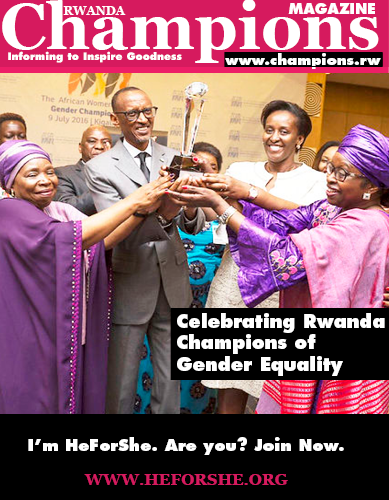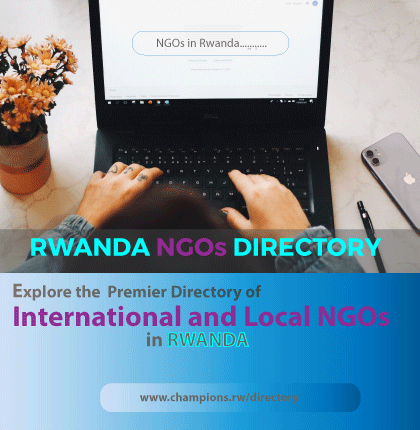Rwanda Boosts School Feeding Budget as One-Third of Population Enrolled in Schools
Rwanda has increased funding for its nationwide school feeding program, reinforcing a policy that provides meals to (…)

For thousands of young Rwandans entering the job market each year, finding decent work remains a daunting challenge. A new Africa-wide research initiative launched in Kigali this week hopes to change that by putting youth voices at the centre of policy and systems reform.
The three-year programme, called the African Youth Pathways to Resilience and Systems Change (AYPReS), was launched on Wednesday, September 10. It is being implemented by the Partnership for African Social and Governance Research (PASGR) in partnership with the Mastercard Foundation. Alongside Rwanda, it will run in Kenya, Uganda, Ethiopia, Nigeria, Ghana, Togo, Benin, Senegal, and Côte d’Ivoire.
AYPReS is designed to study how young people—including refugees, displaced persons, rural women, persons with disabilities, and those in the informal sector—can help reshape the systems that limit their opportunities for sustainable livelihoods.
“Every year, more than 250,000 young Rwandans enter the labour market, yet the number of formal jobs remains limited,” said Jean Claude Rwahama, Director of Social Protection at the Local Administrative Entities Development Agency (LODA). “This mismatch has pushed many into the informal sector, where conditions are often precarious.”
He added that youth unemployment currently stands at nearly 17 percent—significantly higher than the national average of 11.1 percent—with rural youth and young women disproportionately affected. While the government has introduced several youth-focused programmes, Rwahama noted that coordination gaps limit their impact.
“Many programmes create temporary jobs but lack clear pathways into sustainable, private-led employment,” he said. “This project will help us understand how to close those gaps and build lasting solutions.”
PASGR officials say the project is not just about gathering data but also about elevating voices often excluded from decision-making.
“Our earlier research shows most young people do not necessarily want formal jobs—they aspire to be entrepreneurs,” said Rose Njage, PASGR Programme Officer for Research and Policy. “But what has been missing is evidence on which sectors interest them most, and the obstacles they face in starting and sustaining businesses.”
She stressed the importance of disaggregating youth needs. “Too often, categories like youth with disabilities, refugees, or rural young women are treated as a single group. Through this initiative, we are listening directly to them, because interventions designed without their voices risk missing the mark.”
In Rwanda, Njage said, the study will also examine reintegration of youth from rehabilitation centres and raising awareness among refugees about their right to employment.
The programme will establish the Utafiti Sera House on Youth Resilience and Systems Change in Rwanda—a research-to-policy platform bringing together government, civil society, academics, and young people to co-create solutions.
“Our role is to create policies that open doors for young people,” said Solange Tetero, Director General of Youth Empowerment at the Ministry of Youth and Arts. “AYPReS provides the evidence and platforms to ensure that all youth, especially those often left behind, are heard and included.”
Dr. Jean Baptiste Nsengiyumva, Rwanda’s principal investigator for AYPReS, underlined the same point:
“Too often, policies are made about young people without truly engaging them. This initiative ensures that their perspectives, particularly those of marginalized groups, directly inform the solutions we develop.”
The Mastercard Foundation reaffirmed its backing for youth-led solutions.
“Across Africa, young people are resilient, innovative, and ready to lead,” said Prof. Ayo Ojebode, the Foundation’s Director of Programmes. “Through AYPReS, we aim to turn their lived experiences into actionable evidence that can guide policies and systems change.”
The Kigali inception workshop featured panel discussions, group dialogues, and testimonies from youth participants. Many shared hopes for entrepreneurship opportunities, skills development, and fairer access to work.
“It’s not just about jobs—it’s about dignity and agency,” said Aline, a participant from a rural district. “For the first time, I feel that what we say can actually influence policies.”
The event also launched Rwanda’s Utafiti Sera House, which will serve as a hub for ongoing dialogue between youth, government, and research communities.
“Utafiti Sera is about creating spaces where evidence moves directly into policymaking,” Njage explained. “It’s not research for the sake of research—it’s about influencing real decisions that affect real lives.”
By the close of the workshop, participants had built connections and pledged continued collaboration.
“AYPReS is not just a programme; it’s a platform for partnership,” said Dr. Nsengiyumva. “Today we began a journey where young voices will guide policies, create opportunities, and inspire systems change across Africa.”
Rwanda has increased funding for its nationwide school feeding program, reinforcing a policy that provides meals to (…)
Rwanda has launched a $300 million initiative to expand Volcanoes National Park and protect surrounding communities (…)
Atlantic Microfinance for Africa (AMIFA), a subsidiary of Morocco’s Groupe Banque Centrale Populaire (Groupe BCP) (…)
Foreign investment in Rwanda has surged over the past five years, nearly tripling from $390.3 million in 2020 to (…)

